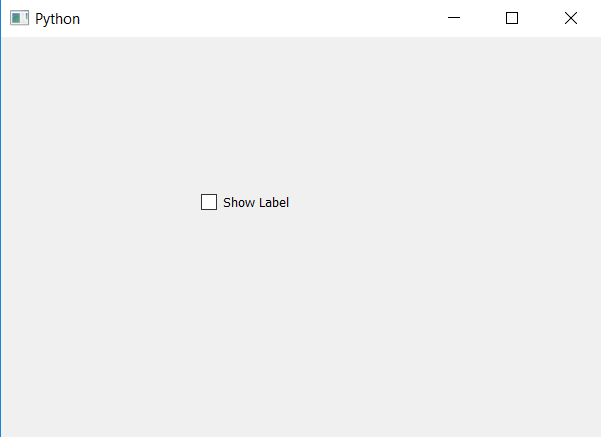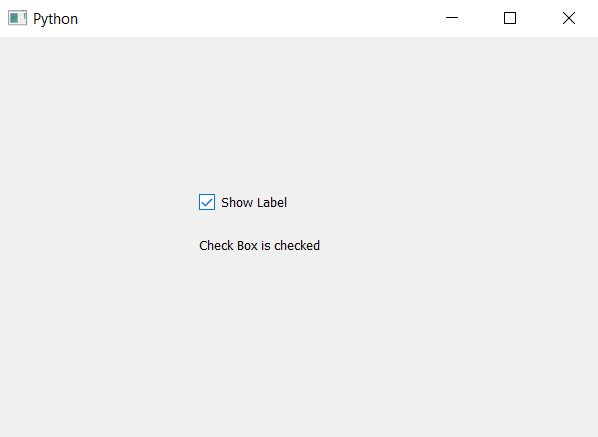En este artículo veremos cómo establecer una acción en una casilla de verificación. Agregar acción a una casilla de verificación significa que cuando la casilla de verificación está marcada, debe realizar alguna tarea. Para hacerlo, usaremos stateChanged.connectel método, cuando se cambie el estado de la casilla de verificación, se conectará a la acción.
Sintaxis: checkbox.stateChanged.connect(method_name)
Argumento: Toma el nombre del método como argumento.
Acción realizada: llamará al método cuando se marque la casilla de verificación
A continuación se muestra la implementación.
# importing libraries
from PyQt5.QtWidgets import *
from PyQt5 import QtCore, QtGui
from PyQt5.QtGui import *
from PyQt5.QtCore import *
import sys
class Window(QMainWindow):
def __init__(self):
super().__init__()
# setting title
self.setWindowTitle("Python ")
# setting geometry
self.setGeometry(100, 100, 600, 400)
# calling method
self.UiComponents()
# showing all the widgets
self.show()
# method for widgets
def UiComponents(self):
# creating the check-box
checkbox = QCheckBox('Show Label', self)
# setting geometry of check box
checkbox.setGeometry(200, 150, 100, 30)
# adding action to check box
checkbox.stateChanged.connect(self.action)
# creating action method
def action(self):
# creating label
self.label = QLabel("Check Box is checked", self)
# moving the label
self.label.move(200, 200)
# adjusting the size of label
self.label.adjustSize()
# showing the label
self.label.show()
# create pyqt5 app
App = QApplication(sys.argv)
# create the instance of our Window
window = Window()
# start the app
sys.exit(App.exec())
Producción :
Cuando la casilla de verificación esté marcada, la ventana se verá así
Publicación traducida automáticamente
Artículo escrito por rakshitarora y traducido por Barcelona Geeks. The original can be accessed here. Licence: CCBY-SA